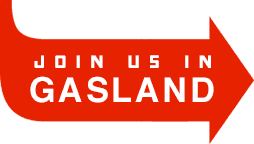A week ago today, Josh was on the Melissa Harris-Perry show to talk about the chemical spill in West Virginia that left 300,000 people without clean water. If you missed it, here’s the segment Josh was on.
It was a great segment with a terrific section on how we need a national conversation about replacing fossil fuels with renewable energy. Josh points out that with 6,000 spills in 2012 alone, amounting to more oil, gas, wastewater and fracking fluids spreading throughout the continental US than the total volume of oil spilled in the Exxon Valdez, we are in a permanent state of “spill” that can’t really be called accidental anymore.
But there’s one moment that’s been eating away at me so much this whole week that I can’t handle not talking about it for another minute.
Around 7:23, host Melissa Harris-Perry, brings up the “human cost” of creating the Panama Canal, creating a parallel between it and coal mining in West Virginia. As a self-proclaimed devil’s advocate, she asks Marcus Mabry do people have to die for corporate progress?
So I asked myself, do I want to use coal, natural gas or oil if I know their extraction is poisoning someone like John Fenton, the Ely family or any of the other families featured in Gasland and Gasland Part II?
As a country, have we to answer those questions. Every time we turn on a light, turn on our cars or turn on our stoves, are we okay with someone else’s family being poisoned so we can power our lives?
I don’t think anyone’s ever really asked us those questions. There’s a huge disconnect between the energy that powers our lives and where it comes from. I think if they did ask, the answer would be no. As an American society we’re not okay with having one portion of our population sacrificed to meet the rest of the country’s energy needs, especially since there are safer, renewable alternatives.
But Melissa Harris-Perry didn’t ask if it is okay that one part of our country is expendable for the sake of the rest of us, she asked do people have to die for corporate progress?
And I think without really meaning to, she got to the root of the problem.
Corporate progress.
Because there are people answering Melissa’s question, they’re just not you and me.
The fossil fuel industry is saying yes it’s okay for people to die for our progress, a progress that has nothing to do with the powering of our country, and everything to do with them meeting their bottom lines, making billions of dollars.
They’re saying yes. Yes, it’s okay to frack to get gas even though it can contaminate the water and air.
Yes it’s okay to move to other forms of extreme energy extraction even though we know we have to keep those fossil fuels in the ground to avoid catastrophic climate change.
And they’re not saying yes because it’s a necessary evil. They’re saying yes because they’re making money.
Because if they truly cared about “progress” the fossil fuel industry wouldn’t be moving America back from the progress we’ve made. We are a better America today than when the Panama Canal was built.
We’ve passed labor and human rights laws that say it’s not okay for hundreds of people to die the way the workers of the Panama Canal did. Many of those labor laws were born in the coal mines of West Virginia.
We’ve passed a lot of important environmental laws since then too.
And in passing all those labor, human rights and environmental laws, we’ve already answered the question do we have to sacrifice peoples’ lives to progress as a society.
It’s not just a moral question either. Science is on our side. We know that there is another way when it comes to how we power our society. And that means there is absolutely no reason for certain communities to be made expendable for the sake of corporate profits.
Right now there are still people facing illness, contamination and ruin so multinational corporations can make billion of dollars. So the questions should really be, why are we letting that happen?
By Lee Ziesche, Gasland Grassroots Coordinator
Last little note: As to what that other way is, stay tuned. You’ll be hearing from us very soon with more.



Follow Us: